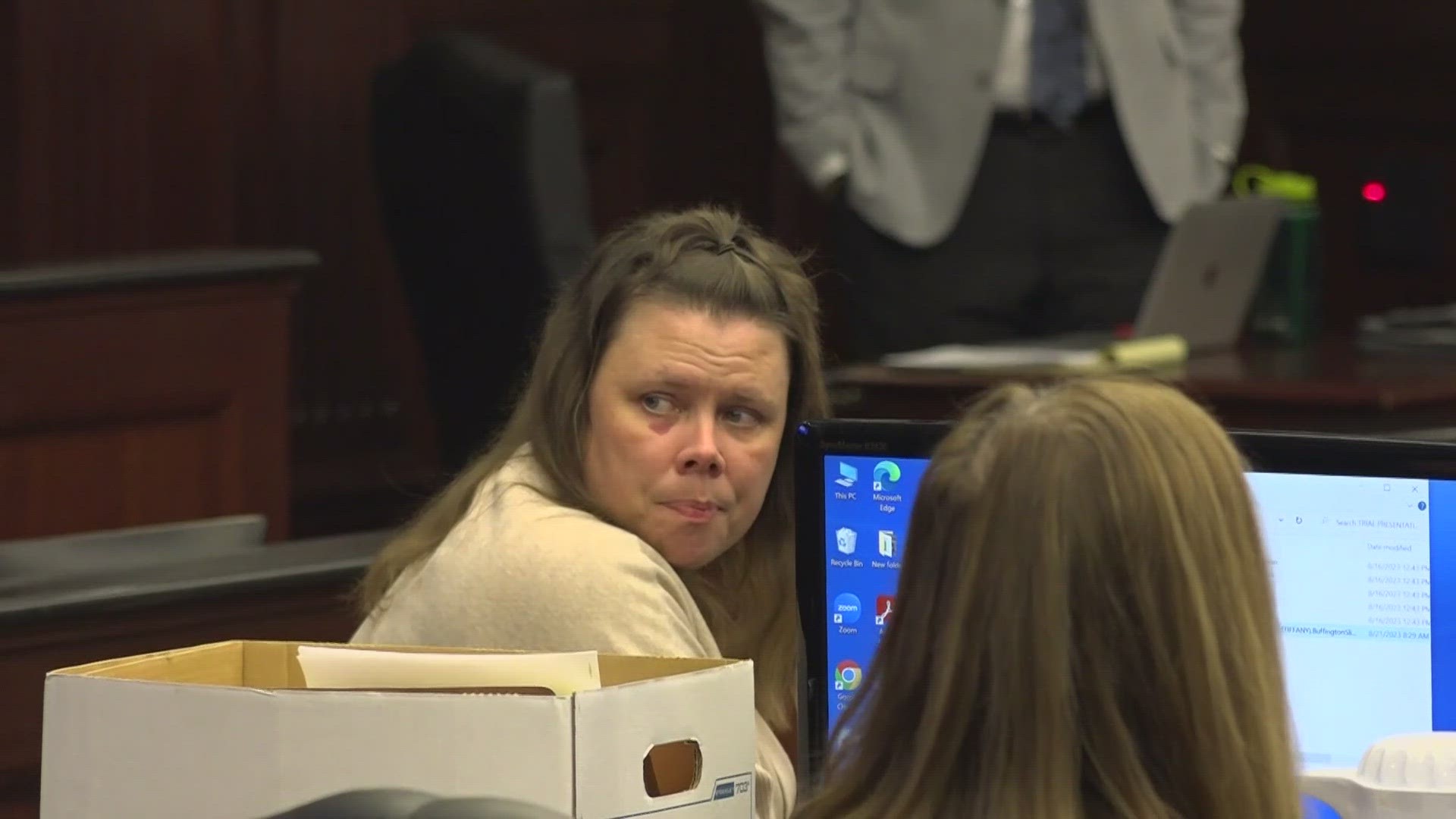JACKSONVILLE, Fla. — A woman sentenced to death for the murder of a Jacksonville couple who were buried alive expressed dismay Tuesday that more people didn’t testify in her defense.
Tiffany Cole, 41, was previously convicted of helping kidnap Carol and Reggie Sumner from their Jacksonville home in July 2005 and burying them in what prosecutors call a South Georgia “death pit.” Her original death sentence was thrown out, and for the past five days jurors have been hearing testimony at her resentencing hearing.
After Cole's defense lawyers rested their case, senior Circuit Judge Michael Wetherby asked if she was satisfied with their performance. Cole noted there had been some “communication issues” but said she was chiefly dissatisfied with their failure to call more witnesses.
“I gave them a list of like 75 names in Charleston [S.C.] to go find,” she said. “And I know over time it’s probably been hard to find these people, but... I just couldn’t believe that out of 75 people that nobody was willing to come forward and say anything about me.”
Defense attorney Julie Schlax assured the judge they had reached out to everyone on the list, including physically going to North Carolina to knock on doors.
“As we have explained to Tiffany leading up to this, we were very satisfied with our ability to put on what we felt were [witnesses from] critical stages in her life to support the mitigating circumstances,” Schlax said.
Cole's lawyers called at least 25 witnesses, including family members, a psychologist and a clinical pharmacologist, as well as prison experts and inmates. Over three days, they have testified about Cole’s difficult childhood, lifelong low self-esteem, sexual molestation by her father, abusive boyfriends and various traumas.
Psychologist Dr. Julie Harper testified Cole was a “9” out of 10 on the ACE scale, which measures Adverse Childhood Experiences.
Harper said Cole was also traumatized as she and her three codefendants were preparing the Sumners' grave two days before the murders. “She was made to [stand] in a dug grave, and at that point she realized how much risk she felt like she was in,” Harper testified.
Assistant State Attorney Alan Mizrahi pushed back. “So she was -- said she was -- actually in the grave?” he asked.
“She said she was in the grave,” Harper said.
“That was to make sure that the bodies could fit in the hole they just dug, right?” Mizrahi responded, drawing an objection from the defense.
Defense attorneys also called a former fellow inmate who lived two cells down from Cole in the “close management” ward at Lowell Correctional Institution, a women’s prison in Ocala.
Cynthia Johnson testified she was “at my rock bottom” when she met Cole, using drugs in prison and mourning the death of her son. Johnson said the younger inmate helped her get her life back.
“Tiffany was never afraid to stand up and tell me that I was wrong. She taught me that I was not ugly. She taught me that it was not nice to be angry. She helped me deal with the grief because I had lost my son,” Johnson said, breaking into tears.
Johnson noted that by agreeing to testify, which required being transported from Lowell to the Duval County Jail, she’d lost her spot in a preferential prison program. Still, she said she felt compelled to appear.
“The person that I met when I met Tiffany, she gave me a lasting imprint,” Johnson said. “It still motivates me to do better. I just want to give her something back.”
Several others testified about Cole's deep religious faith and desire to help teach other inmates.
Cole chose not to take the stand in her own defense, as she did at her original trial in 2007. She asked the judge for an opportunity to take the stand simply to apologize for her actions, but Wetherby said if she did, she would have to submit to cross examination by prosecutors.
Closing arguments begin Wednesday at 9 a.m. followed by deliberations. Since Cole's original conviction still stands, the jury's only task is to decide if she receives a sentence of life in prison or death.

